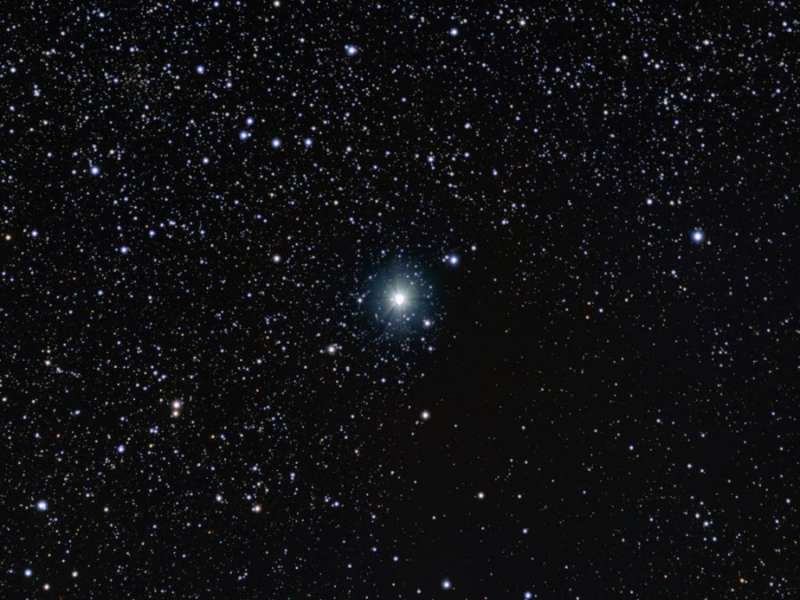
|
Credit & Copyright: Alson Wong
and
Citizen Sky
Explanation:
Every 27 years
Epsilon
Aurigae fades, remaining dim
for roughly two years before growing bright again.
Since the 19th century, astronomers have studied the mystery star,
eventually arguing that Epsilon Aur, centered in this
telescopic skyview,
was actually undergoing a long eclipse by a dark companion object.
But the nature of the companion and even the state of
bright star itself could not be pinned down by observations.
Continuing to collect evidence,
Citizen
Sky, a team of professional and amateur astronomers, is studying the
current eclipse of Epsilon Aur, reporting that it began in August
2009 and by late December had reached its deepest point.
Epsilon Aur is now expected to remain dim for all of 2010,
before rapidly regaining normal brightness in 2011.
Meanwhile, recent
infrared
data from the
Spitzer
Space Telescope supports
a model for the enigmatic system that identifies
Epsilon Aur as a large but lower mass star near the end of its life,
periodically eclipsed by a single star embedded in
a dusty disk.
The disk is estimated to have a radius of about 4
AU, or 4 times
the Earth-Sun distance, and to be about 0.5 AU thick.
Note: An
APOD editor will review astronomy images of 2009,
hosted by the Amateur Astronomers Association of New York
tonight
at the American Museum of Natural History, NYC.
|
January February March April May June July August September October November December |
| ||||||||||||||||||||||||||||||||||||||||||||||||
NASA Web Site Statements, Warnings, and Disclaimers
NASA Official: Jay Norris. Specific rights apply.
A service of: LHEA at NASA / GSFC
& Michigan Tech. U.
Based on Astronomy Picture
Of the Day
Publications with keywords: eclipse - dust disk - infrared
Publications with words: eclipse - dust disk - infrared
See also:
